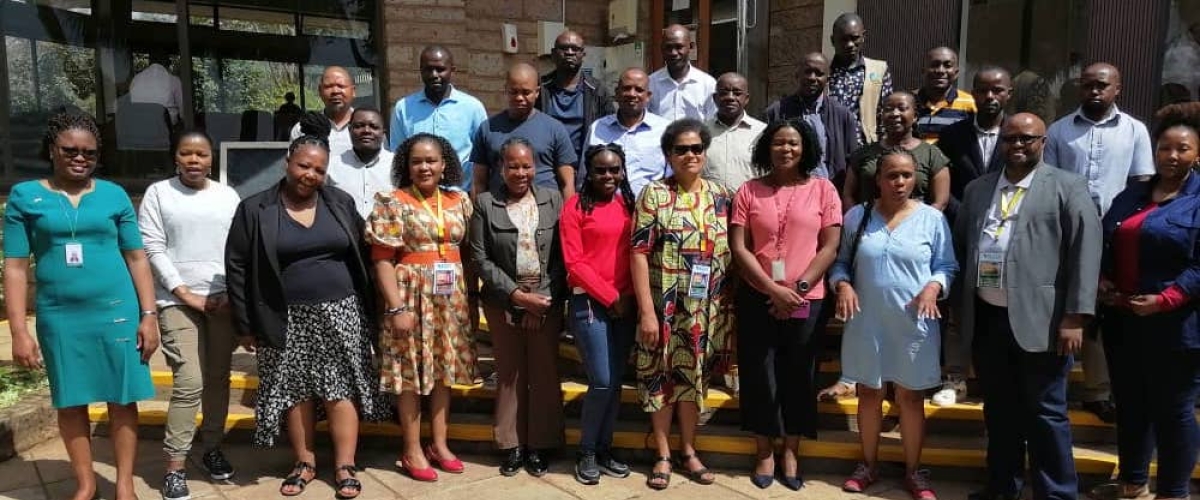
Scientists leading Research and Development (R&D) sub-projects under the Agricultural Productivity Programme for Southern Africa (APPSA) in Angola and Lesotho, completed a hands-on training on DNA Extraction, genotyping, and analysis of genotypic data, from 4 to 15 September 2023, at the Biosciences for Africa (B4A) Laboratory, International Livestock Research Institute (ILRI), Nairobi, Kenya. The training, which benefited 16 Scientists (9 from Angola and 7 from Lesotho) included real-time genotyping and analysis of molecular data. The Scientists were capacitated to handle the output of data generated from approximately 2000 samples of different crops and bacteria which will be sequenced by B4A. The Scientists are working on different client-preferred traits to generate improved agricultural technologies, including disease and drought-tolerant varieties.
APPSA is a six-year World Bank-funded initiative aimed at increasing access and availability of improved technologies in implementing countries. Currently, APPSA is being implemented by Angola and Lesotho with regional coordination by CCARDESA. Under APPSA, Angola is establishing a Regional Centre of Leadership (RCoL) on Cassava-based farming systems whereas Lesotho is focusing on Horticulture-based farming systems. Both countries are collaborating in the implementation of 43 R&D sub-projects whose results are expected to benefit the entire Southern Africa Development Community (SADC).
According to Professor Cliff Sibusiso Dlamini, CCARDESA’s Executive Director and Head of Mission, “Strengthening the research capacity of APPSA implementing countries forms part of CCARDESA’s commitment as per the Project Implementation Manual (PIM) and this training will provide Scientists from Angola and Lesotho with relevant tools to complete their research work.” He encouraged the Scientists to take advantage of the unique training offered by B4A to enhance the quality of science.
This training was held at a time when most Scientists are fully engaged in writing scientific reports and papers to publish their research results as part of a critical requirement for leading APPSA R&D sub-projects. Hence, the training has proven to be of paramount importance mainly for those R&D sub-projects focusing on generation of improved varieties.

Overall, in this training, Scientists were exposed to concepts and practical exercises on DNA extraction, purification, quantification, and genotyping. The training also covered downstream processing of the genotypic data, data cleaning, transformation, quality checks, identification of Single Nucleotide Polymorphisms (SNPs) of interest, and general analysis of molecular data.
At the end of the training, Scientists in attendance unanimously expressed their satisfaction after being capacitated to the unique field of molecular biology. They all confirmed the relevance of the training in their research work under APPSA and expressed confidence in accurately ironing out the specific genetic differences of research materials. In her closing remarks, Dr Siboniso Moyo, the Deputy Director General of ILRI, expressed gratitude to Angola, Lesotho, and CCARDESA for entrusting ILRI to be part of the process of resolving problems affecting the farming communities through capacity building of scientists and called for more collaboration in the future.


 English
English Français
Français Português
Português Kiswahili
Kiswahili



